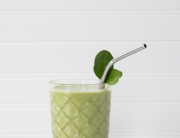IS COFFEE GOOD FOR YOU?
I love coffee. I’m not alone – more than half the adult population in the United States drink coffee every day. I started my coffee habit in college on those cold northern winters when I had to stay alert in my 8:00 am Calculus class. I would drink coffee every morning and then added some after dinner, to keep me focused to study for my engineering exams (yes, I worked as a Structural Engineer for 9 years!). I was living on borrowed energy and didn’t know it.
It wasn’t until in my late 30’s and two young children later, that I realized I was hooked and couldn’t function or be nice until I had my cup of Joe. The effects were diminishing – I noticed a drop every afternoon where the only “cure” seemed to be another cup of coffee. I found myself needing more and more to function clearly and my sleep was less restful.
I decided to “detox” and slowly weaned myself off. After a week of headaches and being cranky, my body recovered and I woke feeling refreshed and with mental clarity for the first time in years! I discovered that I had more energy without the coffee than I did drinking it. So I began to ask myself is coffee a really good for me?
Coffee is a complex substance that contains more than 1,000 compounds that may affect health. The debate is still out on its perks and quirks. Let’s take a look.

Coffee Quirks
Some health experts claim that coffee (or any type caffeine) should be avoided. Drinking coffee has some disadvantages. For example, it’s very addicting. Just miss one day and you’re likely to experience headaches and irritability. Coffee is said to release stress hormones like Adrenalin and cortisol which can cause weight gain, anxiety, insomnia and spikes in blood sugar. It also may contribute to nutritional deficiencies via the excretion of calcium, magnesium, potassium, iron and trace minerals. It’s can also dehydrate the body, aging the skin and kidneys.
Coffee Perks:
On the other hand, coffee has some reported benefits and some health professionals go as far to claim that coffee is a health food. Some claims include protection against certain types of cancer; elevated mood, more alertness and better concentration; increased athletic performance; reduced muscle pain; decreased likelihood of stroke and some diseases like Parkinson’s and Alzheimer’s; lowered risk of depression and Type 2 Diabetes.
All things in moderation
The American Dietetic Association recommends having no more than 300 mg of caffeine a day which equates to about one 16 ounce cup of coffee (for you Starbucks junkies that’s a Grande cup). If you find yourself with insomnia, restlessness, feeling jittery (or drinking red bull to get through a spin class), then you should probably consider cutting back on your caffeine intake. A better approach may be to get to the root of why you are so tired. Consider making some lifestyle changes. Try hydrating with pure water, fueling with proper whole food nutrition, reducing your stress, getting some exercise and plenty of sleep. There’s no need to rely on caffeine to give you energy, if you embrace a healthy lifestyle.
If you are consuming coffee in moderation, it’s a good idea to make it the healthiest drink possible.
Tips for making Coffee healthier
- Try drinking coffee black with no added sweetener or cream.
- If you must add sweeteners, skip the little blue and pink packets and choose real sugar. Better yet, choose natural sweeteners that are less processed like honey, maple syrup or stevia. In addition to sweetness, they provide a small amount of enzymes, minerals and vitamins.
- Skip the flavored creamers that are full of high fructose corn syrup, artificial flavor and partially hydrogenated oils called trans fat. Instead try organic milk, almond milk or coconut milk.
- Add a sprinkle of some cinnamon and take advantage of some of its health benefits like lowering cholesterol and stabilizing blood sugar levels.
- If your budget allows, choose organic coffee beans which is free of pesticides, fungicides and herbicides.
The bottom line is that the benefits of coffee continue to be studied and debated. Like anything else, moderation is key.





